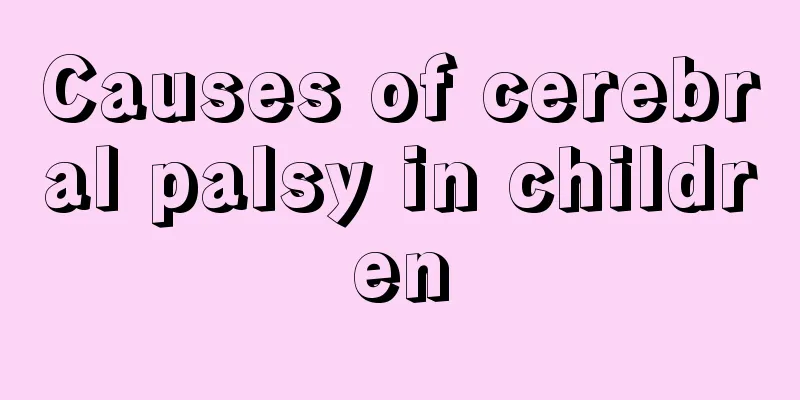Causes of cerebral palsy in children

|
Many parents want to know why their children suffer from cerebral palsy. Only after knowing the cause of the child’s illness can they better treat it. In my country, according to authoritative surveys, children with cerebral palsy account for 1.5 to 5/1000 of the total number of newborns. There are approximately 3 million children with cerebral palsy, and the number of children with cerebral palsy is still increasing at a rate of 46,000 people each year. No parent wants their child to suffer from this disease. All parents hope that their children can grow up healthy, but the reality is cruel. When these children suffer from cerebral palsy, parents are very heartbroken. Let us take a look at the causes of cerebral palsy in children. The causes of cerebral palsy are relatively complex, but they can be mainly divided into three factors: prenatal, intrapartum, and postpartum. 1. Prenatal factors: abdominal trauma of pregnant women, threatened abortion, prenatal bleeding, pregnancy toxemia and placental causes (placental abruption, placenta previa, placental necrosis or placental dysfunction), as well as certain chronic diseases of pregnant women (hypertension, hepatitis, diabetes, drug abuse, drug overdose). 2. Factors during delivery: such as difficult labor, interruption of umbilical cord blood supply due to sagging or wrapping of the umbilical cord around the neck during delivery, neonatal asphyxia, macrosomia and low birth weight babies, premature babies, birth injuries, etc. 3. Postpartum factors: such as neonatal jaundice, neonatal intracranial hematoma, sepsis leading to shock, aspiration pneumonia, atelectasis leading to cerebral hypoxia, etc. Cerebral palsy is not a simple disease, but a syndrome. It is due to brain damage, resulting in a series of dysfunctions including the brain, nerves, muscles, etc. The symptoms of cerebral palsy are varied and very complex. A single treatment method inevitably has limitations and often fails to achieve good therapeutic effects. Although cerebral palsy is very difficult to treat, parents should not give up hope. The medical community is also constantly researching more methods to treat cerebral palsy in children, so parents must have confidence. In addition, parents must pay more attention to children with cerebral palsy and let these children receive more care and love than normal children. |
>>: What to do if a three-year-old baby gets angry
Recommend
What is the reason for frequent urination in little boys?
Frequent urination and urgency are more likely to...
What causes late teething in children?
After the baby is born, as the baby grows older, ...
Can children use pillows when sleeping?
Every child is a treasure in the hearts of their ...
Baby's buttocks have pimples
Because babies do not have the ability to urinate...
How to deal with a fever in a three-year-old child
What should we do if a three-year-old child has a...
Can children drink sweet wine?
There are various types of wine, including red wi...
What's the matter with the rash on the baby's palms?
The baby's skin is the softest and most fragi...
The child keeps complaining of stomachache
Children's physical health is one of the most...
What causes rheumatoid arthritis in children?
In today's life, no matter what disease it is...
What are the disadvantages of children not eating breakfast?
A day's plan begins in the morning. We need t...
Disadvantages of the second generation of test tube babies
For infertile men, IVF is undoubtedly the best so...
Case presentation of renal cyst in children
In our daily life, health care is increasingly va...
Does diaper rash itch?
Nowadays, many mothers use diapers for their babi...
What are the dangers of brain CT scan in children?
In daily life, we must pay attention to brain hea...
Will children really grow taller by running?
Running is a very popular sport. No matter it is ...









